The EU’s action plan for organic farming aims to achieve 25% of EU agricultural land under organic production by 2030.
Back in 2020, Ireland was tied with Malta as the EU member states with the lowest proportion of land under organic (2% in 2020).
That situation has changed significantly with 5% of farmland now in organic production and the target is to increase this to 10% by 2030. Across the EU the average area of land in organic farming was 10.4% in 2022.
Boosting consumer demand for organic products is an important part of the EU’s action plan for organics and in Ireland significant investment has been given to the promotion of the Irish organic sector in recent years.
Leveraging this investment, Bord Bia is focused on promoting Irish organics to both trade customers and consumers, both home and abroad. Bord Bia has also conducted a range of research studies to better understand the organic market in Ireland and overseas.
Bord Bia insight
This year, Bord Bia carried out extensive research in Europe to better understand where the organic category is going and the opportunities and challenges for future exports. A deep dive was conducted into seven markets: the UK, France, Netherlands, Germany, Belgium, Austria and Sweden.
This research included interviews with well-known European retailers, buyers and distributors across the seven markets. Over 10,000 organic shoppers also participated in the research.
According to the research, 68% of all organic shoppers across the seven markets would purchase Irish organic food and drink. Consumers in the UK, Germany and Belgium showed a high acceptance and willingness to purchase Irish organic food.
More importantly, in both the UK and Germany, Irish organic food and drink was seen as the number one import of choice for domestic organic shoppers.

Emmet Doyle, Organic sector manager Bord Bia.
When probed on why they would choose the Irish organic version, being pasture raised and better quality were the top reasons given.
Based on the research findings, the focus for the Irish organic sector is to drive sales in the UK, Germany and Belgium by leveraging the existing consumer preference and awareness of Irish organics. In markets such as Austria, Sweden and France, which have thriving organic markets, the focus is to increase the awareness of Ireland as a source of organic produce.
Irish organic sales
The Irish market currently consumes 50% of all organic lamb produced in Ireland with the remainder exported, mainly to Germany and Belgium.
Over one third of all organic Irish beef is sold in Ireland with the remaining two thirds destined for exports. Approximately 50% of organic beef exports are destined for Germany and the UK.
Less than one third (30%) of organic oats are consumed in Ireland with half of all organic oat exports going to the UK.
Ninety-five per cent of organic eggs and 100% of organic milk are sold on the domestic market, while over 90% of organic farmhouse cheese exported.
All organic Irish fruit and vegetables are sold in the Irish market. Of this, 80% is sold in mainstream retail with the remaining sold through farmer markets, online and direct box scheme.
EU market for organic produce
In 2022, total organic retail sales across the EU bloc were €45 billion, an increase of 125% from 2013. Despite this, 2022 was a difficult year for organic sales due to the cost of living crisis and inflation. However, in 2023 the organic market returned to positive growth with key European markets such as Germany (up 5%) and Belgium (up 20%) recording growth.
The average annual EU per capita spend on organic food and drink is €102.
Austria and Sweden rank well above the EU average, with annual spending of €268 and €266 respectively on organic produce per capita. The German market is the largest European organic market worth €16 billion in 2023, with per capita spending of €191.
Organic targets
Last month, the Department of Agriculture, Food and the Marine (DAFM) launched the new national organic strategy for 2024-2030, which has set a number of ambitious targets around increased production.

Austria and Sweden rank well above the EU average, with annual spending of €268 and €266 respectively on organic produce per capita.
Organic sheepmeat is targeted to increase from 500 tonnes to 3,000 tonnes by 2030. The quantity of organic beef produced is set to treble from 4,000 tonnes this year to 12,000 tonnes by 2030.
The goal is to double organic milk production by 2030 to reach 40 million litres.
The poultry sector has the potential to increase egg production by 50% to 53 million eggs per year.
The aim for the organic horticulture sector is to reduce imports of organic fruit and vegetables to less than 50% - currently 70% of organic fruit and vegetables sold in Ireland is imported. The organic tillage area is forecast to more than double by 2030.
Leakage
Selling of organic produce in conventional markets, referred to as leakage, continues to be a challenge for the organic livestock sector, particularly sheep.
Estimates for 2022 suggest that 70% of organic lambs and 30% of organic cattle are processed as conventional. The goal over the lifetime of the National Organic Strategy is to reduce this to 50% for sheep and 10% for cattle.
The strategy calls out the need to encourage the formation of organic producer groups to strengthen the links between store producers and finishers. Bord Bia is working on educating trade customers about the seasonality of supply in the organic sector.
Organic farming in the EU
France, Spain, Italy and Germany account for 60% of the total area under organic farming in the EU. France has the largest area under organic farming in the EU with 2.5 million hectares and approximately 11.8% of its agricultural land (as of 2020), while Austria has the greatest proportion of land devoted to organics (26.5% in 2021).
Across the EU, permanent grassland accounts for 42% of organic farmed land, followed by green fodder (17%), cereals (16%), and permanent crops, including vineyards and other fruits (11%).
Fourteen per cent of fully organic EU farms are specialised in cattle-rearing and fattening.
Despite this, organic animal production still accounts for a small share of total EU animal production. In 2020, about 6.0% of the EU cattle herd and 7.2% of sheep and goat flocks were estimated to be organically raised. For poultry this is estimated at 3.6% and 1% for pigs.
Promotion funding
Last year, Bord Bia was awarded funding from the EU to deliver a campaign to promote organic beef and sheepmeat across four EU markets: Austria, Sweden, Germany and Belgium.
With a budget of €2.7 million, the business to business focused campaign aims to raise awareness of the positive attributes of pasture raised organic beef and lamb from Ireland.
This will be the first EU co-funded campaign for organic beef and lamb and comes at a pivotal time for the sector, as we look to increase market demand in high potential markets over the next three to five years.
The campaign emphasises Ireland’s pasture and outdoor farming credentials, which are a key differentiator against our export market competitors.
In the past two weeks Bord Bia launched the EU campaign across Germany, Belgium and Sweden.
As part of the launch, Irish organic beef and lamb were exhibited at two trade shows, Rolling Pin in Germany – a trade show for high end restaurants and food service, and in Stockholm
at the renowned Nordic Organic Food Fair.
In addition, three ‘Organic Meat Academies’ were held, targeting media and trade buyers in Dusseldorf, Brussels and Stockholm.
Over the course of the three year programme, Bord Bia will deliver a further 13 ‘Organic Meat Academies’ across the four markets, exhibit at eight trade shows and bring over 100 journalists and trade buyers into Ireland.
National Organic Awards
The Bord Bia National Organic Awards celebrate the achievements and high standards of the increasing number of organic growers, producers, and manufacturers in the country. On October 17, a total of six awards were presented including the ‘New and Innovative Award’, ‘Best Organic Product Award’ the ‘Irish Organic Champion Award’. Judges included chef Clodagh McKenna, food writer Suzanne Campbell, and chef and Irish Country Living journalist, Janine Kennedy. Visit Bordbia.ie/news for a full list of winners.
The EU’s action plan for organic farming aims to achieve 25% of EU agricultural land under organic production by 2030.
Back in 2020, Ireland was tied with Malta as the EU member states with the lowest proportion of land under organic (2% in 2020).
That situation has changed significantly with 5% of farmland now in organic production and the target is to increase this to 10% by 2030. Across the EU the average area of land in organic farming was 10.4% in 2022.
Boosting consumer demand for organic products is an important part of the EU’s action plan for organics and in Ireland significant investment has been given to the promotion of the Irish organic sector in recent years.
Leveraging this investment, Bord Bia is focused on promoting Irish organics to both trade customers and consumers, both home and abroad. Bord Bia has also conducted a range of research studies to better understand the organic market in Ireland and overseas.
Bord Bia insight
This year, Bord Bia carried out extensive research in Europe to better understand where the organic category is going and the opportunities and challenges for future exports. A deep dive was conducted into seven markets: the UK, France, Netherlands, Germany, Belgium, Austria and Sweden.
This research included interviews with well-known European retailers, buyers and distributors across the seven markets. Over 10,000 organic shoppers also participated in the research.
According to the research, 68% of all organic shoppers across the seven markets would purchase Irish organic food and drink. Consumers in the UK, Germany and Belgium showed a high acceptance and willingness to purchase Irish organic food.
More importantly, in both the UK and Germany, Irish organic food and drink was seen as the number one import of choice for domestic organic shoppers.

Emmet Doyle, Organic sector manager Bord Bia.
When probed on why they would choose the Irish organic version, being pasture raised and better quality were the top reasons given.
Based on the research findings, the focus for the Irish organic sector is to drive sales in the UK, Germany and Belgium by leveraging the existing consumer preference and awareness of Irish organics. In markets such as Austria, Sweden and France, which have thriving organic markets, the focus is to increase the awareness of Ireland as a source of organic produce.
Irish organic sales
The Irish market currently consumes 50% of all organic lamb produced in Ireland with the remainder exported, mainly to Germany and Belgium.
Over one third of all organic Irish beef is sold in Ireland with the remaining two thirds destined for exports. Approximately 50% of organic beef exports are destined for Germany and the UK.
Less than one third (30%) of organic oats are consumed in Ireland with half of all organic oat exports going to the UK.
Ninety-five per cent of organic eggs and 100% of organic milk are sold on the domestic market, while over 90% of organic farmhouse cheese exported.
All organic Irish fruit and vegetables are sold in the Irish market. Of this, 80% is sold in mainstream retail with the remaining sold through farmer markets, online and direct box scheme.
EU market for organic produce
In 2022, total organic retail sales across the EU bloc were €45 billion, an increase of 125% from 2013. Despite this, 2022 was a difficult year for organic sales due to the cost of living crisis and inflation. However, in 2023 the organic market returned to positive growth with key European markets such as Germany (up 5%) and Belgium (up 20%) recording growth.
The average annual EU per capita spend on organic food and drink is €102.
Austria and Sweden rank well above the EU average, with annual spending of €268 and €266 respectively on organic produce per capita. The German market is the largest European organic market worth €16 billion in 2023, with per capita spending of €191.
Organic targets
Last month, the Department of Agriculture, Food and the Marine (DAFM) launched the new national organic strategy for 2024-2030, which has set a number of ambitious targets around increased production.

Austria and Sweden rank well above the EU average, with annual spending of €268 and €266 respectively on organic produce per capita.
Organic sheepmeat is targeted to increase from 500 tonnes to 3,000 tonnes by 2030. The quantity of organic beef produced is set to treble from 4,000 tonnes this year to 12,000 tonnes by 2030.
The goal is to double organic milk production by 2030 to reach 40 million litres.
The poultry sector has the potential to increase egg production by 50% to 53 million eggs per year.
The aim for the organic horticulture sector is to reduce imports of organic fruit and vegetables to less than 50% - currently 70% of organic fruit and vegetables sold in Ireland is imported. The organic tillage area is forecast to more than double by 2030.
Leakage
Selling of organic produce in conventional markets, referred to as leakage, continues to be a challenge for the organic livestock sector, particularly sheep.
Estimates for 2022 suggest that 70% of organic lambs and 30% of organic cattle are processed as conventional. The goal over the lifetime of the National Organic Strategy is to reduce this to 50% for sheep and 10% for cattle.
The strategy calls out the need to encourage the formation of organic producer groups to strengthen the links between store producers and finishers. Bord Bia is working on educating trade customers about the seasonality of supply in the organic sector.
Organic farming in the EU
France, Spain, Italy and Germany account for 60% of the total area under organic farming in the EU. France has the largest area under organic farming in the EU with 2.5 million hectares and approximately 11.8% of its agricultural land (as of 2020), while Austria has the greatest proportion of land devoted to organics (26.5% in 2021).
Across the EU, permanent grassland accounts for 42% of organic farmed land, followed by green fodder (17%), cereals (16%), and permanent crops, including vineyards and other fruits (11%).
Fourteen per cent of fully organic EU farms are specialised in cattle-rearing and fattening.
Despite this, organic animal production still accounts for a small share of total EU animal production. In 2020, about 6.0% of the EU cattle herd and 7.2% of sheep and goat flocks were estimated to be organically raised. For poultry this is estimated at 3.6% and 1% for pigs.
Promotion funding
Last year, Bord Bia was awarded funding from the EU to deliver a campaign to promote organic beef and sheepmeat across four EU markets: Austria, Sweden, Germany and Belgium.
With a budget of €2.7 million, the business to business focused campaign aims to raise awareness of the positive attributes of pasture raised organic beef and lamb from Ireland.
This will be the first EU co-funded campaign for organic beef and lamb and comes at a pivotal time for the sector, as we look to increase market demand in high potential markets over the next three to five years.
The campaign emphasises Ireland’s pasture and outdoor farming credentials, which are a key differentiator against our export market competitors.
In the past two weeks Bord Bia launched the EU campaign across Germany, Belgium and Sweden.
As part of the launch, Irish organic beef and lamb were exhibited at two trade shows, Rolling Pin in Germany – a trade show for high end restaurants and food service, and in Stockholm
at the renowned Nordic Organic Food Fair.
In addition, three ‘Organic Meat Academies’ were held, targeting media and trade buyers in Dusseldorf, Brussels and Stockholm.
Over the course of the three year programme, Bord Bia will deliver a further 13 ‘Organic Meat Academies’ across the four markets, exhibit at eight trade shows and bring over 100 journalists and trade buyers into Ireland.
National Organic Awards
The Bord Bia National Organic Awards celebrate the achievements and high standards of the increasing number of organic growers, producers, and manufacturers in the country. On October 17, a total of six awards were presented including the ‘New and Innovative Award’, ‘Best Organic Product Award’ the ‘Irish Organic Champion Award’. Judges included chef Clodagh McKenna, food writer Suzanne Campbell, and chef and Irish Country Living journalist, Janine Kennedy. Visit Bordbia.ie/news for a full list of winners.






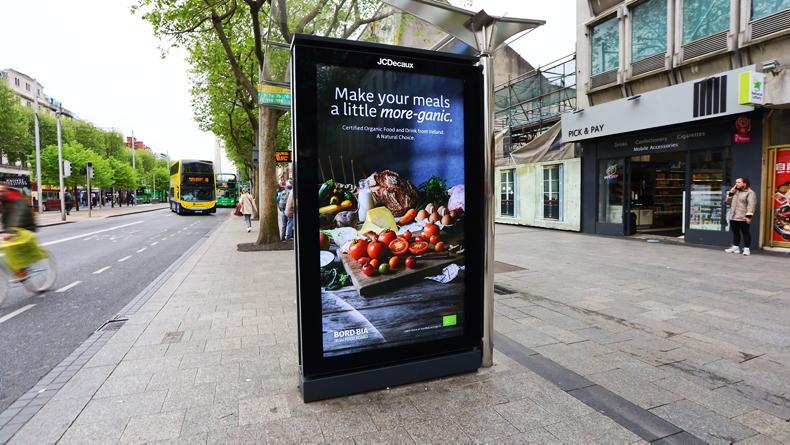
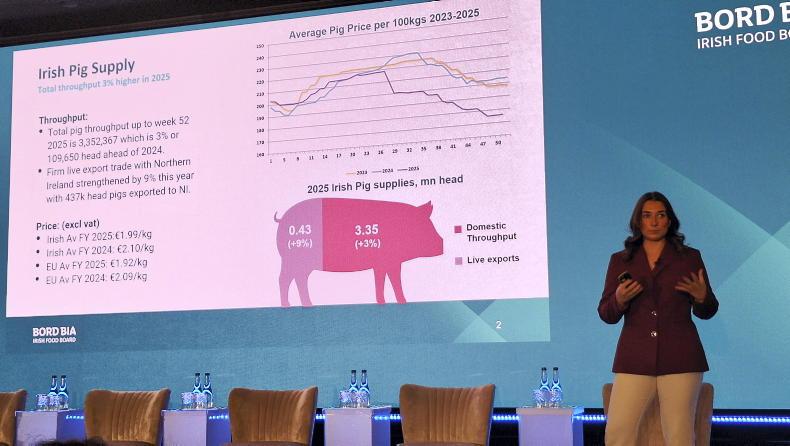

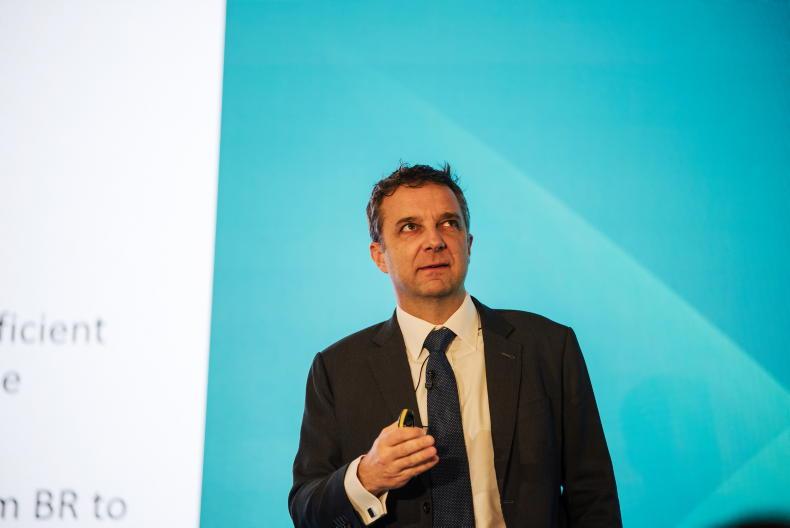
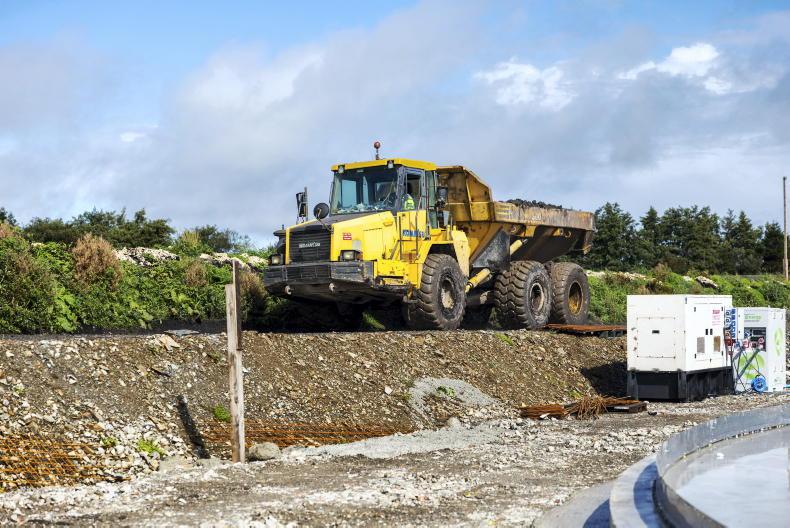
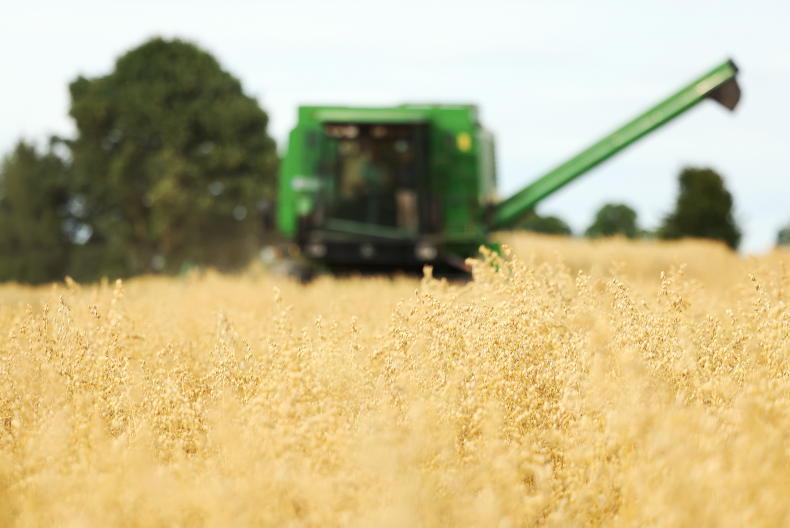
SHARING OPTIONS